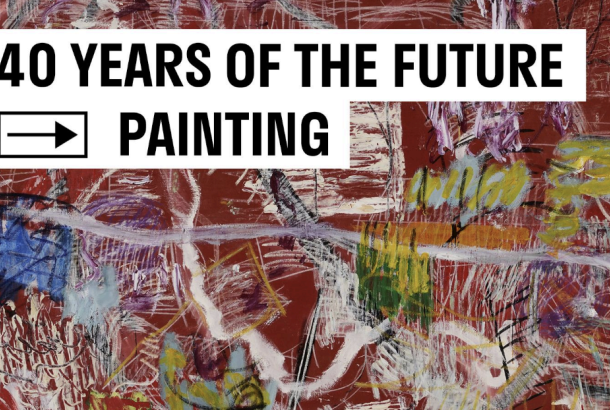The ‘Before I Die’ blackboard: Iterations and implications
Death works its way into the everyday imagination in myriad un-profound ways, a claim which this article might both explore and attest. Death in the glib sloganeering of mass culture rarely carries the full weight: it is wholesale death, cut-price death, death-light.
This plays out in the pop song refrains of ‘party like it’s your last night alive’, which never struck me as practical advice; on my final day on this mortal realm, would I really care about catching that Jackmaster set?
I suspect not, as my entire consciousness would be prey to the seemingly endless yet soon-to-end torments of regret, guilt, sadness and earth-shattering fear (which, by the way, are to a lesser degree the four horsemen of hangover rather than the recipe for a banging night out).
Here in Manchester, outside University Place, and now in over seventy countries worldwide, people have the chance to consider life, death and enter the process of self-examination with Candy Chang’s ‘Before I Die’ public participatory art project.
A glance over the communal bucket list reveals a plethora of hopes, ranging from “be a basic bitch” to “get schwifty”, making pit stops at “marry Michael Scofield” and “dismantle heteropatriarchy”. Initially I considered writing an ‘I tried doing these things and it was crazy’ Vice-type piece, but I didn’t want to have to repeat what I had done over the weekend.
One afternoon, walking northward up Oxford Road, a route I follow every day, I saw someone at work clearing away the messages to leave space for more. He was like a figure of the pressures and conditions of life; the pleasure principle that wanted to ‘shag a ten’ and the instinct for aggression that wanted to ‘kill Trump’ were left as unfulfilled desires.
What could only remain was the reality principle: intent on subsisting and living moderately well in civilised life. Might not there be an alternative to funnelling ourselves into the restrictive framework of the reality principle?
I wondered this as I watched the man wash away the phrase ‘live not just survive’, aware that it was this man’s job to clear the board; this was how he earned a living, how he survived.
The blackboard could represent life, with the words on its surface as potential actions of every individual. Each time phrases were wiped off, a generation passed. In place of the actions of the past were actions of the present, written into life as if new, yet so like what came before as to be almost tracing the faint lines of our ancestors onto a page which we pretend is blank.
Whether the words on the board were empty or whether they might be fulfilled, I didn’t know. But, whatever they said, they were said again and again, with this flow of reiteration punctuated by the recurring endpoint of being cleared away.
As I walked on, I came to the Manchester Aquatics Centre, a place that promotes health. The slogans on its outer surface tell you “better: the feel good place” four times. As if conspiring to imbue the rhythms of repetition into the pedestrian’s unfocused eye, the building offers the phrase “group cycle”, slyly proposing the idea of infinite circularity in place of the individual’s experience of the cyclical process of life where you are not statically peddling, but instead peddling towards death.
I looked across at the slogans on the windows of the Geoffrey Manton Building, which count up to seven. All the days were there but day one. Where was the origin? Must we consider life, belated as we are in 2017, as always having been amid an endless turning whose starting point is faded into obscurity?
I thought back to the blackboard and could not remember seeing only one or two lines written in chalk. There seemed to be from the start a hundred messages, which in turn seemed already to be written on top of the fading similar messages of days before. This gave pause to consider whether anyone does or says anything that many before have not already said or done.
Further up the road I went, and yet my forward steps belied progress, as I came to a demolished building. On a banner marking off the area read the words “place”, “partnership”, “ambition”, “community” and “sustainability”.
This banner is not just overshadowed by the bombsite which it now demarcates, but also by a larger banner above reading “Connell Brothers Demolition”. The word “brothers” recalls the sentiments of partnership and community, whilst the word “demolition” laughs obnoxiously at these sentiments in derision.
The banner facing Oxford Road repeats “demolition” four times, as if in dialogue with the Aquatics Centre which, four times, told us “better: a feel good place”.
The ongoing repetition of destruction and renewal, life and death, seemed to be undercut by distant red letters at the far end of the wreckage which said ‘stop’. This presumably marked the point at which the demolition should halt, as it was on one of the few walls left standing.
With mind and surroundings almost inextricably linked, I too stopped and turned back to retrace my steps, which I had traced and retraced many times before. Returning to the blackboard, this reverse route led me away from the destroyed building and back via the seventh window, the sixth, fifth, fourth, third and second. I was led to no new origin, but to the first demolished building again.
Back at the blackboard, the man had finished his job clearing the chalk away. So what remained? Just some graffiti, of course.
Sure, come the 25th of March when the project ends, even these markings would also be gone: all is transient. Yet, they will stay there until then, in spite of, or perhaps because they are one of the few markings on the board which did not try to answer the question. And because they used spray paint.







